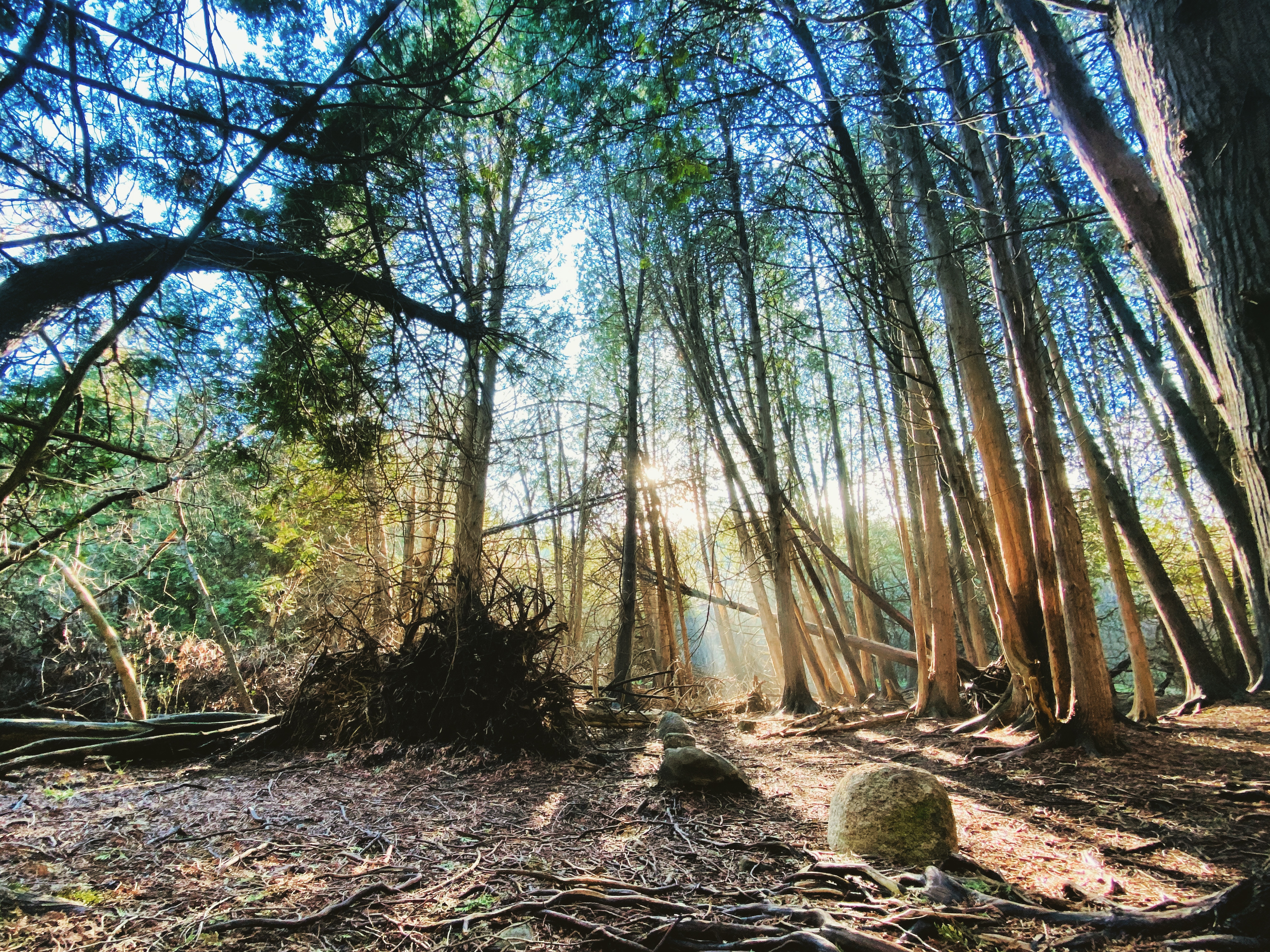
Who's Wilderness Anyway?
What is 'Wilderness'?
Separate from my first love of guiding, my other passion is the study of anthropology. Learning about the different ways of knowing a place that humans create is something deeply fascinating to me. What does it mean to be human? What does it mean to be in a place? How do we relate to places?
As world renowned anthropologist and National Geographic Explorer Wade Davis puts it, the slivers of insight which make up the myriad of cultures that exist in our world today are all answers to two fundamental questions: How and Why? At the Trip Shed, we tend to be of the mind that these questions are best explored in the wilderness, around a fire, after a day in the pouring rain while a crackling fire cooks dinner and dries out soaked boots.
Why, though? And how does a canoe trip do it?

As a Wilderness Guide, my job predicates on an idea that wilderness is ‘out there’. Out where?
The wilderness, as it were, assumes this idea of a raw bounty of nature, untouched by human hands. For most of us, wilderness stands firmly as one of the places so fundamental, and separate to human civilization.
Think of it. We get away to nature. We escape the city. The woods are not here and I sure as hell don’t want to be in this city right now. Take me to the mountain!
We Made it All Up
In fact, the very essence of environmentalism and conservationist movements are founded upon the idea that we need to protect these human-less landscapes.
I agree about the conserving wild spaces part, but I wonder if there’s undeniable truth in the idea that wilderness is a place untouched by human paws. Environmental historian, William Cronon, talks about this, and it really blew me away when I first came across the idea.
He notes that, “far from being the one place on earth that stands apart from humanity, it is quite profoundly a human creation”. Wait, what? This is not to say that the wilderness we know and love are of our own creation - don’t get me wrong, I stand in awe at the edge of a boundless forest at the beauty and power it bestows.
What he’s saying is that the idea of wilderness is very much a human made thing.

Getting Home on a Trip
As our civilizations dive deeper and deeper into densely packed cities, compact cars and semi-detached duplexes, we get further and further away from this baseline of being outside. Thousands of years ago, ‘indoors’ was the treat. It was a safe haven, with the majority of our time, and most of our dependence, being situated around nature or wilderness.
The further we get lost, the bigger importance writers and adventurers place on getting found outside. As some quote or other puts it, “I go to the wilderness to lose my mind and find my self”. Hell yeah. As humans, we realized, whether consciously or not, that the way we’re living is missing something. It’s missing awe and beauty, raw and natural power. We yearn this. We crave it. We need it.

A canoe trip then, as I start most of them by stating, is not so much of a trip at all. It is a return home. It’s a way of getting back to our baseline. To put ourselves up against the mercy and grace of Mother Nature with nothing to help us but our own wits, our friends, and some well-packed gear.
Think about that the next time you go for a hike. Think about the parts of yourself that are stirred when you get outside. It’s elemental. It’s intrinsic. It is the very essence of you.


